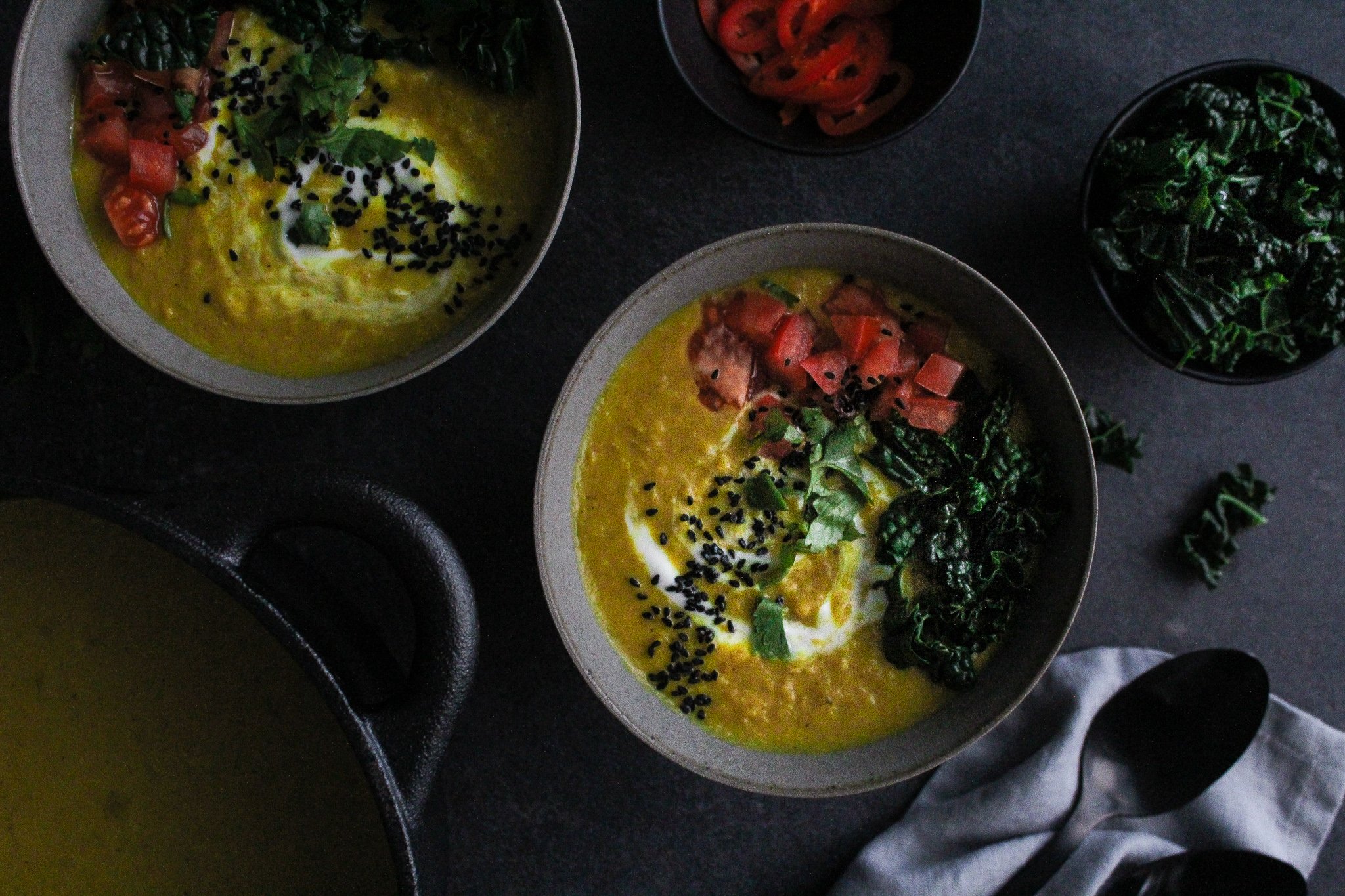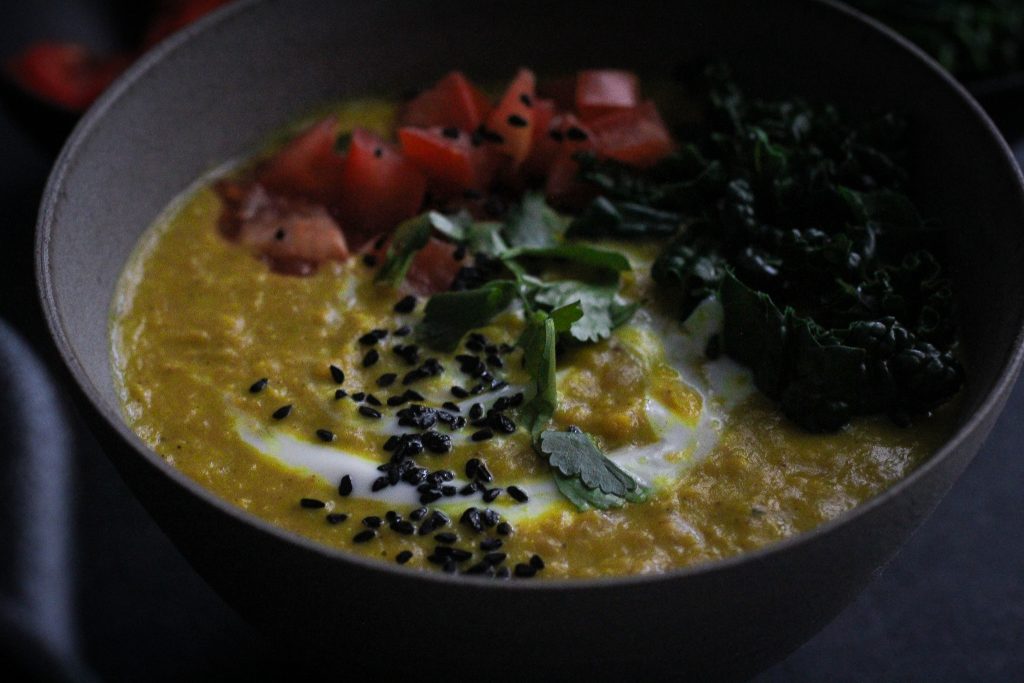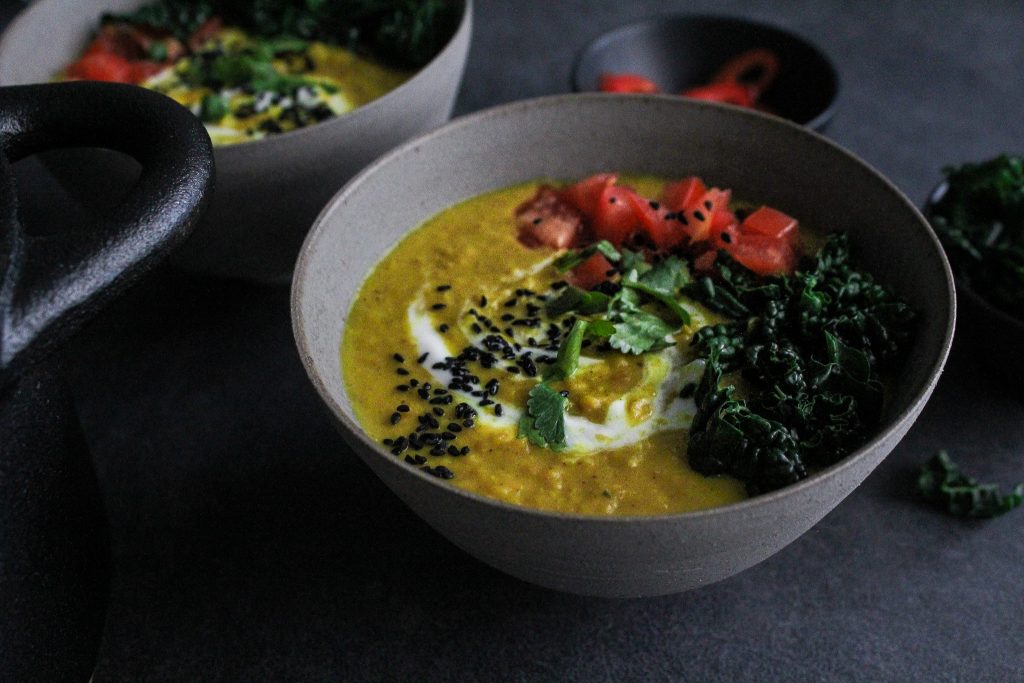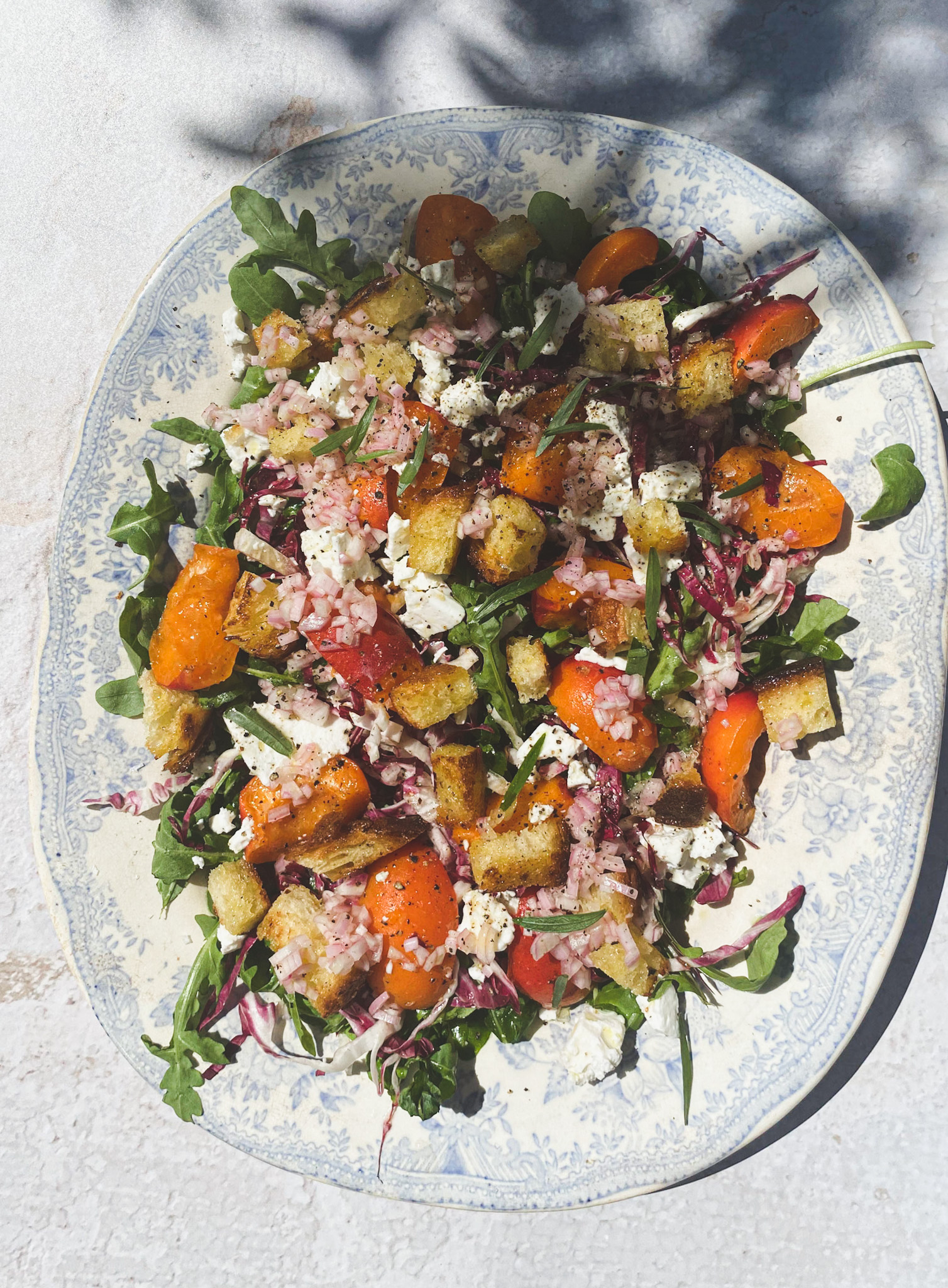
Dahl has to be one of my go-to’s for a quick, full flavoured, protein and fibre packed meal. I’m a big fan of food that has ‘scoopability’ factor where knives are not needed in the mix! The sautéed kale adds some green goodness and texture and the acidity of the tomatoes cut through the creamy coconut, adding some freshness and bringing the dish to life. Add fresh chillis if you like a little extra fire! Ginger and turmeric are very grounding spices and add a soothing, subtle warmth to your belly.
Dahl freezes well so you can make a big batch and have some ready for those nights you don’t feel like getting your cook on!
prep time: 15 minutes cook time: 30 minutes serves: 4
INGREDIENTS
- 400g red lentils
- 1 medium onion ~ diced
- 4 cloves garlic ~ minced
- 6 leaves of cavolo nero kale (stalks discarded) ~ sliced
- 1 large tomato ~ finely diced
- 5cm piece of fresh ginger root ~ peeled & minced/grated
- 1 tsp Himalayan salt
- pinch of black pepper
- 1 Tbsp ground turmeric
- 1 tsp ground cumin
- 2 tsp ground coriander
- 2 tsp nigella seeds (black onion seeds)
- Small bunch of fresh coriander ~ finely chopped
- 1 Tbsp coconut oil
- 1L water
- 400ml coconut milk
- 2 Tbsp natural unsweetened yogurt (or coconut yogurt if vegan)
METHOD
- Add most of the coconut oil (save some to sauté the kale!) to a medium/large saucepan over medium heat. Add the garlic, ginger, turmeric, ground coriander, cumin, black pepper and onion. Cook for 3 minutes until onions becomes translucent and the spices smell fragrant. Stir regularly.
- Add the lentils and salt and cover with the water. Bring to the boil and then reduce the heat. Add the coconut milk and let it simmer for 20-25 minutes, stirring occasionally.
- Then place a small frying pan over medium heat, add the remaining coconut oil and the kale. Cook for 5 minutes and stir regularly.
- Serve up in bowls and top with the tomato, kale, a swirl of yogurt, the fresh corriander and a sprinkle of nigella seeds. Sit back and enjoy!
NUTRITIONAL BROWNIE POINTS
- Numerous studies have shown curcumin, an active constituent of turmeric to exert direct regulative effects on the human gut microbiota. It has the ability to promote growth of the beneficial bacteria such as bifidobacteria and lactobacilli whilst inhibiting growth of pathogenic bacteria.
- Curcumin has also been widely studied for it’s anti inflammatory, antioxidant, antiaging and chemopreventive activities. It’s bioavailability (absorption rate) is enhanced when combined with fats like coconut milk and piperine – an active constituent of black pepper.

References:
- Ravalli, S. Szychlinska, M.A. Musumeci, G. (2018). ‘Recently highlighted nutraceuticles for preventive management of osteoarthritis’, World Journal of Orthopedics, (11), pp.255-261.
- Zam, W. (2018). ‘Gut Microbiota as a Prospective Therapeutic Target for Curcumin: A Review of Mutual Influence’, Journal of Nutrition and Metabolism, 1367984.


